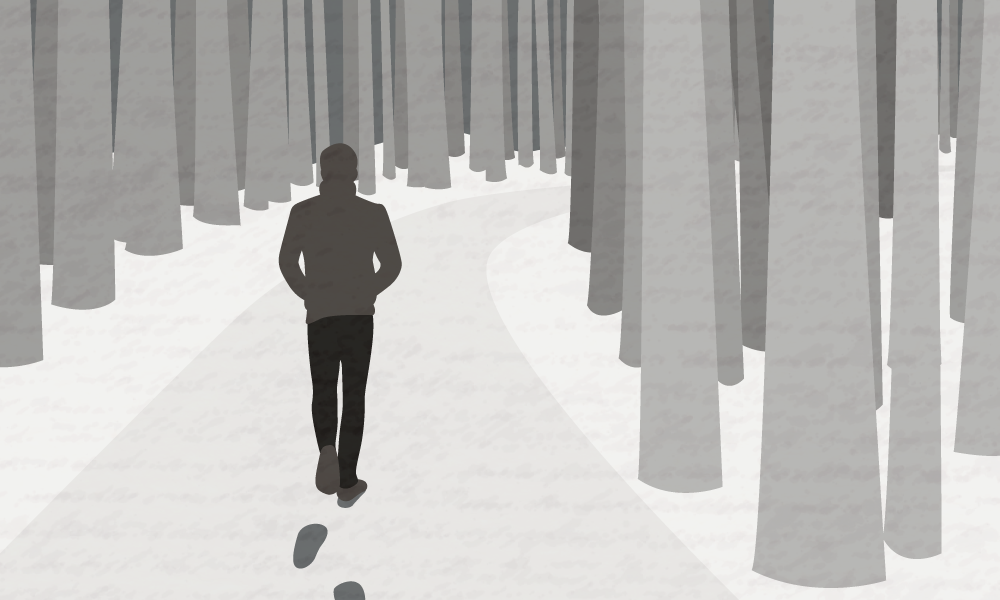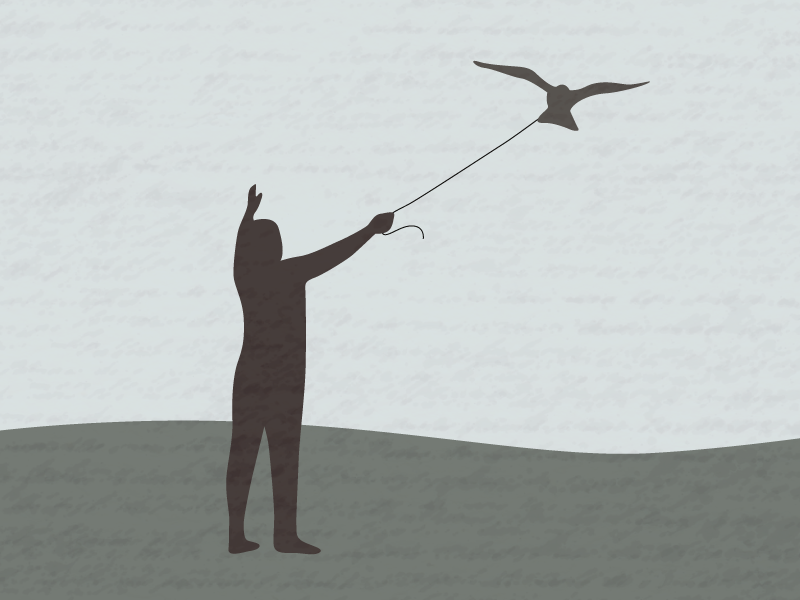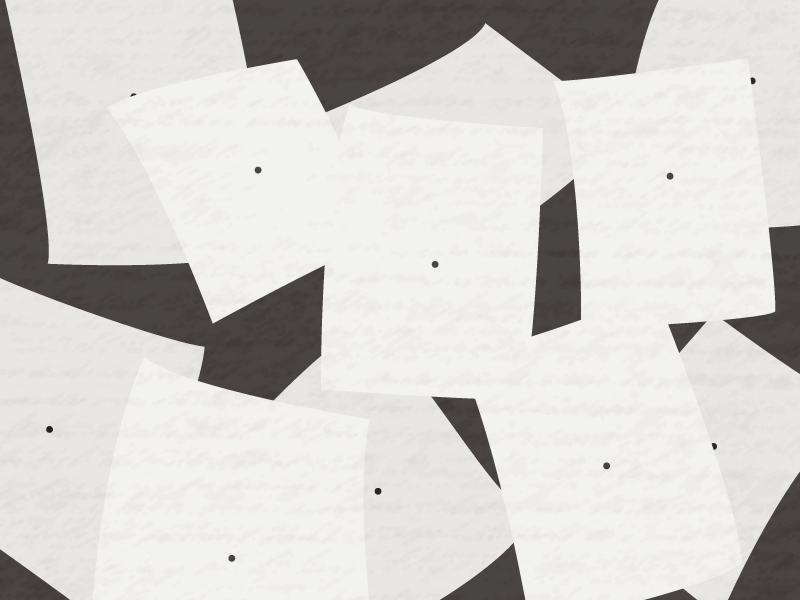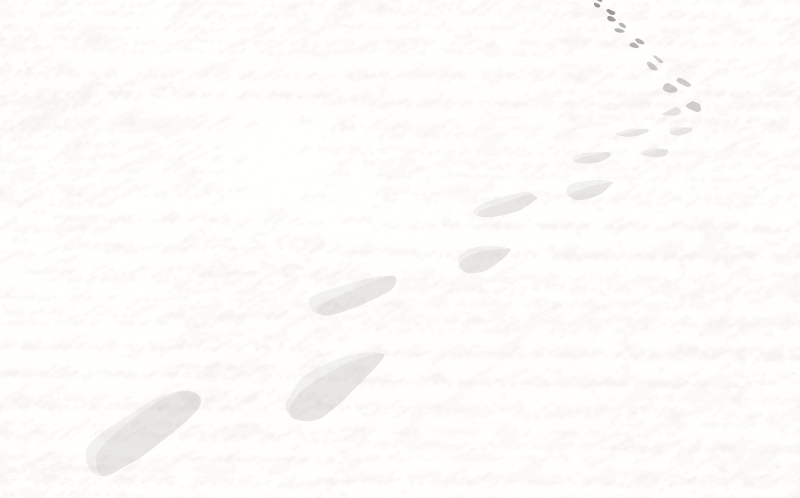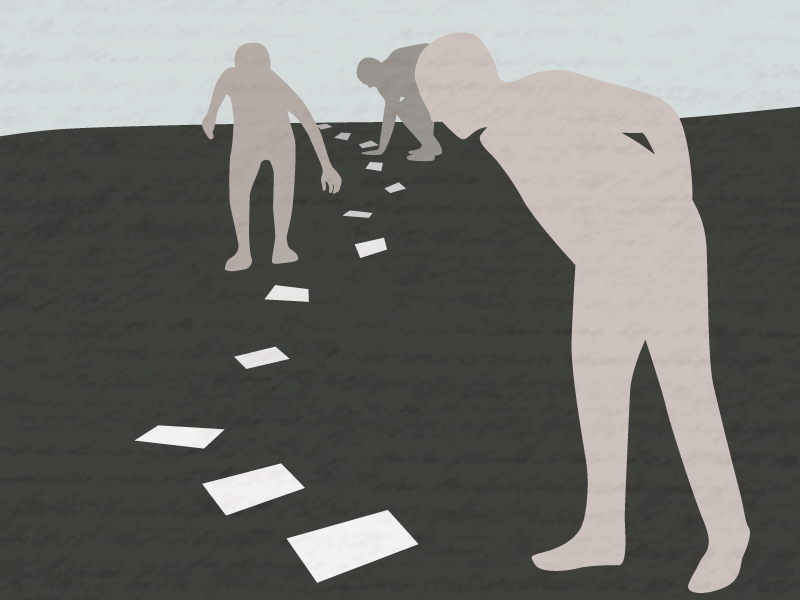Outside the apartment window, at twilight, the trees of Sokolniki Park held the last oranges and reds of autumn, rhyming with the carrots, apples, and beets on the cutting board in front of me as we prepared dinner together, Jeremy and Natasha and I. I’d arrived in Russia earlier in fall 1992 on a Watson fellowship to study “Contemporary Russian Poetry and Its Relationship to Historical Change,” but I was feeling even more lost than when I’d arrived. Russian language, which I’d studied in college for four years, was a thicket that I’d tear myself through every day, trying to express the simplest things. And if the language weren’t thorny enough for me, I found navigating Russian bureaucracies and mentalities — whether train depots or library privileges — like a pathless wood.
In the middle of a particularly dark week, I’d phoned Jeremy — a guy from Chicago whose parents knew my parents — and he invited me over to his place. He was living with Natasha, a talented and driven Muscovite, and they’d welcomed me into their rare Russian-American alliance — two smart, bilingual, sandy-blond cosmopolitans. Eric Dolphy played soundtrack to our kitchen preparations, whose playing, Miles Davis once said, sounded like “walking on broken egg shells.”
“Taste,” Natasha said to Jeremy, holding a large wooden spoon to his lips.
He opened his mouth, tilting back his head and closing his eyes to focus.
“Just a touch more salt, and it’s perfect,” he said, pulling her close and kissing her on the cheek.
“I can’t trust the recipes anymore,” she said to me, giggling from the kiss and pulling away from Jeremy’s grabby hands. A few years ago, she’d been riding a horse that stumbled and threw her off. When she awoke in the hospital, her head still aching from the fall, she couldn’t taste the food. At first, she thought it was the hospital cuisine. Then, slowly, she understood. She had lost her sense of taste. It had never come back.
“It just means that I’m half-full before we start eating,” Jeremy said, palming his paltry stomach.
Just beneath us, Sokolniki Park (Falconer’s Park) was where, centuries ago, the falconers of the Grand Dukes of Muscovy trained their birds. They used tethers, long leather straps, or lines that they’d extend bit by bit over the course of months, giving the falcons further and further reign until they could be trusted to be let free. The falcons would return because they wanted to, or their training told them that they wanted to, or there was no difference between their training and their wanting.
It was also where, just a decade before our post-Cold War kitchen rapprochement, Russian avant-garde artists Andrei Monastyrski, Lev Rubinstein, Ilya Kabakov, Nekrasov and others would gather to engage in their first forays into a kind of artistic playfulness that would come to be called Moscow Romantic Conceptualism.
We left the tiny table after dessert, moving to the living room, talking jazz and poetry. Jeremy — office manager by day, jazz pianist with the experimental band Vezhlivyi Otkaz (Polite Refusal) by night — told me about a strange book he’d heard that was just published in Russia.
“It was just the same word typed over and over. Something like 200 pages,” he said, brushing his thick hair across his forehead, looking into the distance.
I leaned in, eager to hear of another one of Russia’s many maniacs, a land that seemed to grow people without human limits, without normal boundaries.
“What was the word?” I wondered aloud.
“For the life of me, I can’t remember it.”
We both laughed at the madness of it; the mad concept, like some sort of postmodern monasticism, in the mode of The Way of a Pilgrim, praying with every breath, constantly and without ceasing.
I don’t even remember the name of the book. All internet searches have proven fruitless; it was just another of many magically mad acts in a country of leader-butchers and holy fools, madmen and mystics.
Months later, I’d learn more about the avant-garde, at the feet of Vsevolod Nekrasov, a hard-bitten, crusty poet whose work was like nothing I’d ever seen before — tough minimalist shards of language, full of paronymasia, reversals, self-deconstructions. One poem consisted of just a dot on a page, like a period without a sentence. The next poem featured another dot — that same dot, I want to write — but at a different place on the page. The one after that, I want to write, the dot had moved again. Of course it hadn’t moved, but the mind’s desire for narrative pulled me into that story, the story of a dot moving. It’s something deeply human, to want to see random acts as connected into some coherent whole, though they could just be random acts. Nekrasov’s work made me question my own desire to have things connect, to make sense. Perhaps, as I’d felt in the streets of Moscow, nothing actually made sense.
Other Nekrasov poems played with the language in ways that are utterly untranslatable. As in the name of one of his samizdat books: живу вижу. Zhivu Vizhu. Literally, it means “I live I see,” but it’s all about the sound play — the words are sonic inverses of each other, in a way that makes you wonder whether living were the opposite of seeing, or that seeing itself is a scrambling of living, and vice versa.
Which is a good way to describe the uncertainty principle that governed my living in Russia, where I was never sure if I were inside Russia or outside of it, or some blurred third version of inside and outside. Whether what I was living made it impossible for me to see it, or what I was seeing made it impossible for me to live.
Nekrasov’s poetry was a language against itself, language hewing down its own branches, language at ground zero. I didn’t so much interview him as listen mutely to him, catching about half of what he said, knowing that the rest was safely being recorded, knowing that just being there as he unspooled his thoughts was more important than understanding them all. For him, conceptualism was part of the avant-garde attempt to break down the boundaries between art and life, but that such a task was itself quixotic. Since when those boundaries had been broken, no one would know it had happened, because reality itself would be changed. He proposed that art was the state of clearing away all motives, all intentions, and recounted the art-actions that he and others of the Moscow Romantic Conceptualist movement created:
We can consider a mystery together. We can create conditions in which these motives won’t exist. A bunch of people could get together and drive to the countryside. Not because they decided to take a walk in the fresh air. And not because they themselves want to create some kind of work of art. And our motivation would be unclear like “hey let’s go and see what happens.” And nothing will happen. It’ll be just a few people in a peaceful place. So the object is an action, the health of these people, an attempt to create something. And the attempt is not premeditated, because if it is premeditated it will be boring. If they go, they have a program. For example, there’s a field about 300 meters across and a forest nearby. In the middle of the field is a table; on the table are ten poles, and on each pole is a spool; on each spool is a string. So we pull the string and go. And along the way unreel the string. Everyone goes like burlaki [barge haulers] pulling a boat over a dry river. In the forest there’s less snow, you can go out onto some road. You see, there are no obligations. You can decide not to reel and go back to the station. I would rather go to the station because the road is already close. Some other people show up and other things happen. There’s no artistic, aesthetic, extraordinary moment. It’s just something colloquial, constructed with natural curiosity. Unwind, unwind and what will happen? Another time we pulled branches from bushes. For one hour we pulled them off. It turned out we had about a kilometer of branches after a few hours. It was just the simplest thing to do: if you want to pull them, pull, if you don’t, don’t. Just human curiosity.
He offered more tea and cookies. On the recording, his uninterrupted monologue was accompanied by the frequent sound of the thin porcelain cup striking against a saucer, as I nervously dispensed with the polite acceptance of a poet’s hosting. That clinking sound is a portal to that place as hot and bittersweet as the tea itself. I drank so much tea in Russia that when I returned to the States I carried around a headache for a week straight. Suffering from atmospheric re-entry, the culture-shock version of the bends, I was uncertain whether my head would implode or explode.
Nekrasov plowed on, unperturbed by my clinking and clanking, trying to remember for himself as much as for me what it was like then, back when the unclarity of things was itself beautiful: “Another time we met at Sokolniki Park. We walked for a long time and wondered when the action would begin. The action actually already was happening. Behind us people were walking with tape recorders, taping our conversations, our passing comments. It turned out that we were the artists, we made something. In that way, reality is the most valuable, richest material. And at the same time, the most familiar.”
All the actions were recorded — described in language, photographed, and some were even filmed. I’d spend several hours reading all of the actions, stupefied a little by their technicality, but in awe of their devotion. After all, at its most fundamental, what these actions produced was something rather mundane and beautiful: It allowed serious grownups to play in the woods. I’d leave Nekrasov’s apartment with my head reeling, as if I’d been knocked out and left to wake in an open field in the middle of the woods, a little string leading in.
And now Jeremy and I were walking in the very woods Nekrasov and the others had walked, reinventing art as life and life as art. Though the trees were still full of their last fall prismatics, a blanket of snow covered the ground. Behind us, in the white, we left the absence of shoes. On the other side of the park, miles and miles away, was Kaliningrad and its ideas of order, the forests replanted after their destruction by Red Army tanks during Second World War maneuvers around Moscow.
Here, Jeremy and I walked through the quiet woods and talked. At one point, we came upon a small building — roofless, windowless — and couldn’t figure out if it was unfinished or in ruin. So many things in Russia were like that.
We walked so far that we got turned around and lost.
“Let’s follow our footprints,” Jeremy said. You could see them in the fresh snow, since no one else had gone this far into the woods. It seemed like a metaphor for memory — drawing ourselves back to where we came from by the tracks we’d left.
“Good idea,” I replied.
We took the absence of shoes back to the path.
Those marks of absence reminded me of Lev Rubinstein’s great serial poem, “Farther and Farther On,” how it unfolds like a little installation.
The first card announces:
Here, everything begins.
Everything begins here.
However, let’s go farther.
The second card:
Here, no one will ask who you are and where you’re from.
Everything is clear as is.
This is the place where you’re spared persistent cross-examination.
But let’s go farther.
And the third:
Here, the atmosphere is congenial and free.
Here is where you can really relax.
But we should go further.
And the sixth:
Here, nothing matters.
I only wish I could remember this forever.
And pretty soon, card upon card, step upon step, you find yourself in the middle of a heretofore-unimagined space, and it’s just where you’re meant to be. Somewhere along the way that year, I’d started translating Lev Rubinstein, a fellow Moscow Conceptualist, who’d organized some of those actions with Monastyrski and Kabakov. At the time, Rubinstein had been working for many years as a librarian at Lenin Library. The legend is that, like Dr. William Carlos Williams and his prescription pad, Rubinstein just needed something to write on, and library cards abounded.
And the 19th:
Here someone in the half-darkness decides to part with hope and cannot;
Someone, finding himself in financial difficulty, looks for a way out and cannot find one;
Someone tries to draw a distinct line between what is past and what is to come. He just isn’t noticed;
Someone worked it out so that everything he says fits the situation. People like this. He is noticed . . .
Years later, I’d translate every single Rubinstein text, with the help of Tatiana Tulchinsky, card by card, fascinated by the journey that his words took me.
But I didn’t feel satisfied just translating the poems for the page. After all, they were composed on individual cards, and the look of them on the page seemed wrong. These texts asked for more than that.
A decade after my first encounter with Sokolniki, Nekrasov, and Rubinstein, at the end of the academic year at my university, spring in the air, I printed up “Farther and Farther On” on card stock and cut them into miniature cards. With unbent paperclips, I affixed each card on the ground in a winding line on the main grassy quad. Beginning at a landmark, a huge bust of John Carroll, I invited students from my creative writing class to walk through the installation in small groups. Watching them go through the installation, and watching others watch them, I was struck by how creating the texts as small as they were, the students would have to lean over or even kneel in the grass, every ten feet or so, to read another card. It created this odd effect, whereby it looked as if they were bowing to the ground.
On the quad, around these readings, a guy was hitting golf balls, and some students were reading, lying out on a blanket. On the far edge of the quad, another class sat in a circle. Art and life coexisting, blurring together. A couple students, walking by, started reading some of the cards, intrigued by all the bowing.
Jeannie, one of the seniors, knelt down and read the first card aloud: Here, everything begins./Everything begins here./However, let’s go farther. A week from graduation, her voice trembled a little, full of emotion.
I still keep those cards in my desk, in case I want to take people on another journey.
Card 31.
Here it’s said: “All those guilty without sin, those bitten and shy, those intently pondering and those attracted by a barely-audible voice of eternity, those stooped from the backbreaking puzzles of existence, those in undue agitation from God knows what news, those anxiously listening to what is said — where do they find themselves heading?”
Back in Sokolniki, in Jeremy and Natasha’s apartment, it was too late to head back on the train. They set me up on their couch. I pulled Blues People, Amiri Baraka’s book on jazz, off the shelf and started reading, listening to Jeremy and Natasha speak the language between Russian and English in their bedroom, where they lay on their unfoldably-American bed. A beautiful purring sound, two languages coming from two tongues and nestling in a lover’s ears.
Across from me, on the speaker, a framed black-and-white of Eric Dolphy in the throes of music, in that closed-eye orgasm of man and instrument. Dolphy, who sought his own improvisations in and between the standards, the tradition, who played with John Coltrane, whose work — like Nekrasov’s and Rubinstein’s — would so challenge the conventions that they’d call his work “anti-jazz,” was Jeremy’s thread back, back to his other life. My stomach hummed, full of music and food, and my ears and mind hummed, full of tongues and trees of the forest, art and life deliciously confused — like the best kinds of sex, when you don’t know where you begin and the other person ends.
The next morning, Jeremy walked me to the metro station. As I was envious of his ease in Russia, with his facile Russian tongue and his Russian girlfriend, he said he was envious of my time with Russian poetry, seeing this culture as he’d seen it when he first arrived, before it disappeared into routine.
“I want to live through you as you do this work,” he said. “What’s the word for that, when you want to live through someone else?”
For the life of me, I couldn’t remember. •
All images created by Shannon Sands.
